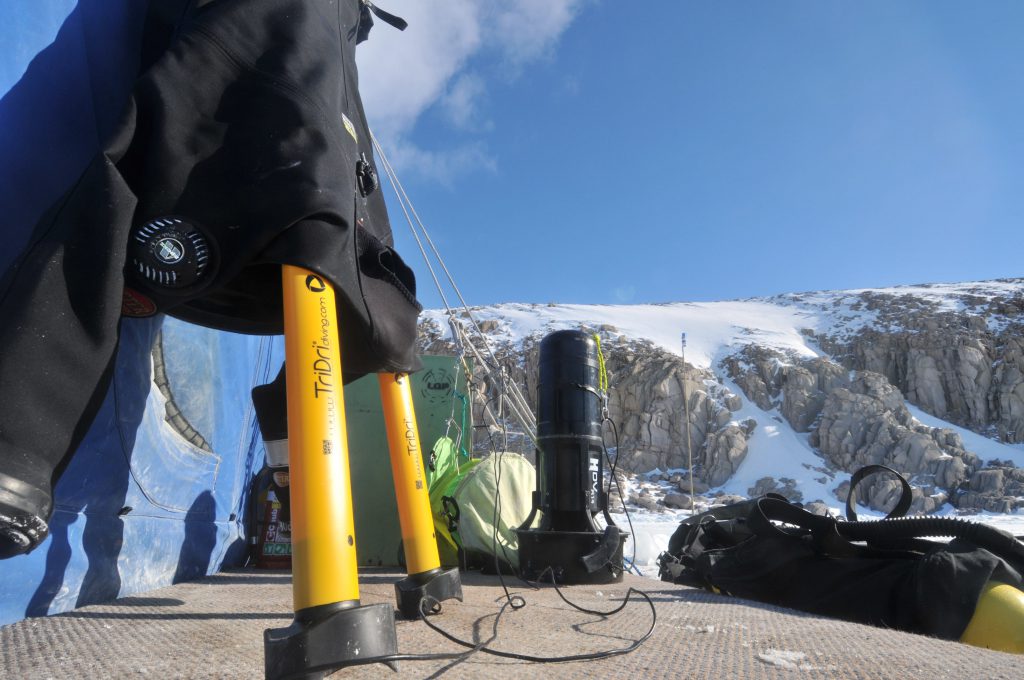If you dive in cold water then you should seriously consider what this expedition to Antarctic did to keep their drysuits really dry to start their dives. TriDri is the only device specifically designed by a diver for divers.
NIWA marine ecologists, including specialist divers, on expedition from New Zealand to Granite Harbour in Antarctica used TriDri units to ensure their suits were kept in the best condition for their underwater and under ice range of experiments. They were so impressed with the efficiency of the units that they doubled their order for TriDri dryers on return to New Zealand.
The experiments involved divers placing specially made chambers on the underside of the ice at Granite Harbour to measure the effects of ocean acidification and warming on sea ice flora and fauna.
The eight-person team headed to the ice for a month. They camped on the ice at Granite Harbour, about 150km from Scott Base, for the duration of the experiments. All the equipment needed for living and working out of tents was taken by wagon train across the ice from Scott Base, a journey that takes about 24 hours.

Expedition leader and marine ecologist Vonda Cummings said Antarctica New Zealand support staff set up the camp and melted holes in the ice to enable the divers to access the sea and attach the chambers.
“Granite Harbour has got really good first year sea ice so there are great algal concentrations under the ice with no bumps or cracks that might confound our chamber results.
“It’s also got nice soft sediment underneath which is great for looking at the sea floor at the same time,” Dr Cummings said.
The chambers, designed by NIWA marine ecologist Neill Barr, measure the effects of specific changes on ecosystem processes such as primary production by algae, nutrient dynamics and the delivery of food from the sea ice to the sea floor.
The temperature and acidity of the seawater in the chambers can be manipulated and controlled to determine how climate change and ocean acidification could affect this fragile ecosystem.

